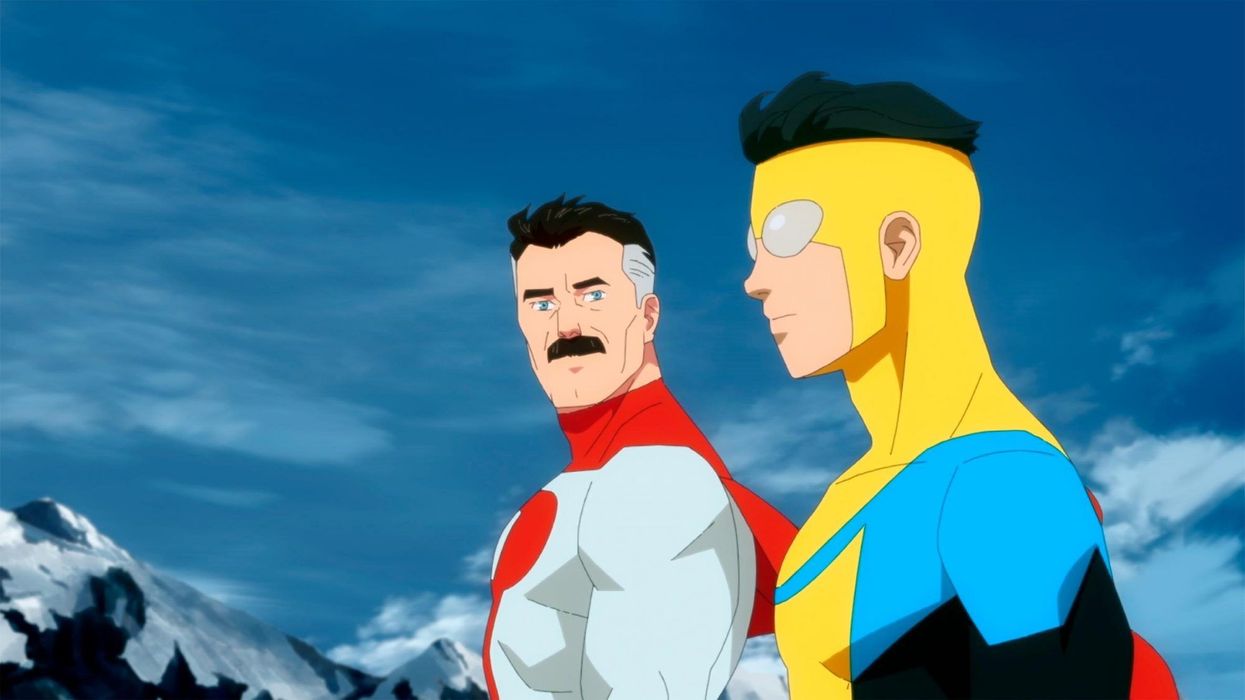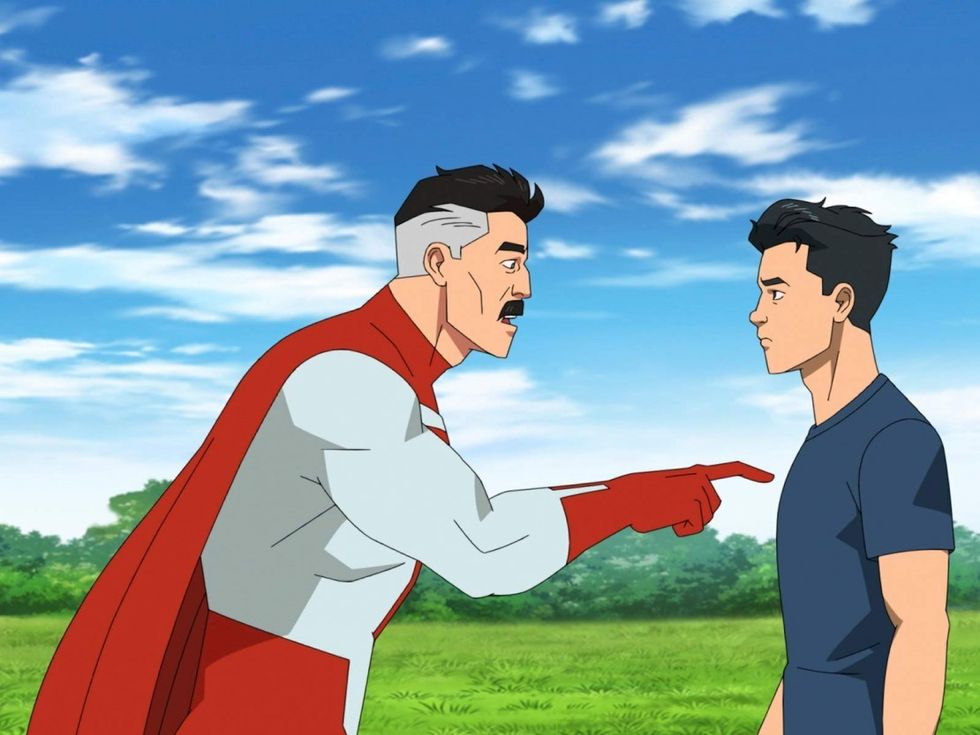'Invincible' Shows How to Add Layers to Parental Issues
This show took character development to another level.

It’s not new for heroes to have daddy issues. Anyone who’s ever watched an episode of LOST can tell you that.
But Invincible, the animated superhero series based on the comics by Robert Kirkman, found a fresh angle on an age-old trope. (Spoilers for the show follow.)
In a recent feature for Paste Magazine, Kenneth Lowe digs into the evil father trope in Invincible and how stories like this ring true for anyone who has ever been disappointed by their own father, and what makes the dynamic between Mark and Nolan in Invincible all the more heart-wrenching.
What Lowe highlights is a lesson we can all learn about how to craft realistic and layered parental relationships in stories, no matter the scope or scale of the story we’re trying to tell.
Let's look at this in more detail.
Before deftly relating the father/son conflict in Invincible to his own childhood, Lowe points out that what sets Nolan’s betrayal apart from other stories with similar twists is that Mark not only knew his father growing up, but also knew him to be a present and caring parent. It’s the proverbial “devil you know” applied to daddy issues.
That’s not the case with Luke Skywalker or Peter Quill, Lowe notes, or other epic and operatic stories like American Gods, Wicked, Watchmen, His Dark Materials, and many of Charles Dickens' novels. The discovery that someone you didn’t really know was your parent all along holds a different kind of weight.
Having someone you know and love betray you? That's a different take entirely.
Other examples of this dynamic
For what it’s worth, the recent live-action offering from Disney, Cruella, plays with this trope as well with a mother and daughter. Since the scene in which dalmatians push Cruella’s mother over a cliff went viral over the film’s opening weekend, you might as well be spoiled a second time and learn that the dogs were called by Emma Thompson’s character, who turns out to be Cruella’s real mother—in turn causing Cruella to question if her true nature really is as evil and ruthless as her nemesis. But again, this is an evil mother she didn’t know.
It’s easy to resent a parent who was absent for most of your life.
One who raised you and then disappoints you is rarer in this kind of heightened storytelling, but it doesn’t have to be, and it’s sadly more realistic. There are a handful of more recent examples of established families in the superhero subgenre, including Jupiter’s Legacy, which was just adapted for Netflix, as well as the Hank and Hope dynamic in the Ant-Man films. The Incredibles, of course, is all about this.
However, in those cases, the fathers are more difficult than outright villainous. Bad dad stories like the one in Invincible are more often found in straight dramas.
It's ironic
The television adaptation of Invincible also, by revealing Mark’s father as a villain to the audience in the first episode of the series, makes use of dramatic irony.
This is yet another storytelling device that adds layers to the dynamic, because we are watching all of the happy moments between Mark and his father with a sense of dread and bewilderment.

What we can learn
So, how can we apply all of this to our own writing and storytelling?
Because Mark knows and loves his father before discovering that he’s a supervillain, and because we know that betrayal is imminent, the plot twist becomes more about how it affects Mark emotionally and what the aftermath will be. Will he ever forgive his father? What does his grieving process look like? Will he lash out at his family or friends? Can he still be a hero?
Don’t focus as much on tricking the audience with a “gotcha” heel turn in your story. Focus on revealing character.
Our characters’ backstory isn’t just a biography, it should inform how they will respond to the dramatic situations you put them in. We return to the well of daddy and mommy issues because it’s something that everyone has some kind of experience with and can relate to, but it’s also because the people who raised us so often affect how we move in the world and there are, unfortunately, endless ways for parents to betray their children in big and small ways.
Even if you want to tell a story about a child with an absent parent, for whatever reason in the story, think about how they could have filled that gap. Do they have a photograph? An anecdote, good or bad? A locket? A teacher or relative who mentors them? All of these things are ultimately more important than the shock value of a, “No, I am your father,” Star Wars moment, as iconic as it is, which is what Invincible gets so right.
Did you watch this show? Let us know your thoughts.











